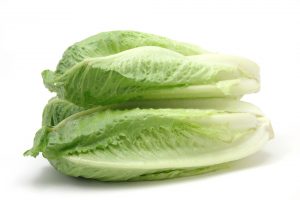The source of the contaminated romaine lettuce that was responsible for the latest E. coli outbreak has been identified and no longer poses a threat. Federal officials announced last week that the cause of the outbreak is due to tainted irrigation water in Arizona.

The Centers for Disease Control and Prevention (CDC) has stated that the outbreak appears to be over as of June 28. After the collection of water, soil and manure samples from the Yuma region the CDC determined that an irrigation canal contained the specific strain of E. coli that began to cause people to fall ill three months ago.
The U.S. Food and Drug Administration (FDA) is continuing to investigate how the irrigation water became contaminated in the first place. As work continues to identify the means by which the bacteria made its way into the water source the FDA has stated that the contaminated lettuce should no longer be available.
The food poisoning outbreak resulted in more than 200 people becoming sick in 36 different states, with five deaths attributed to the E. coli bacteria. The Public Health Agency of Canada also indicated that several people in different Canadian provinces were also affected by the same strain of E. coli. This latest E. coli outbreak is the largest occurrence in more than ten years when spinach grown in California was contaminated by nearby cattle and wild pigs.
Identifying specific farming operations that may be contaminated with E. coli can be difficult due to the way in which salads and other leafy greens products are sold. Prepackaged salads that contain a mix of leafy greens often have produce from several different growers who have contributed to a single product.
“We don’t believe we are seeing more outbreaks. In fact, we believe food is safer than perhaps ever before and today we’re better at finding outbreaks when they occur,” FDA Commissioner Dr. Scott Gottlieb said in a statement. “Paradoxically the number of outbreaks may increase since we are now able to identify problems that had previously been invisible to us.”










